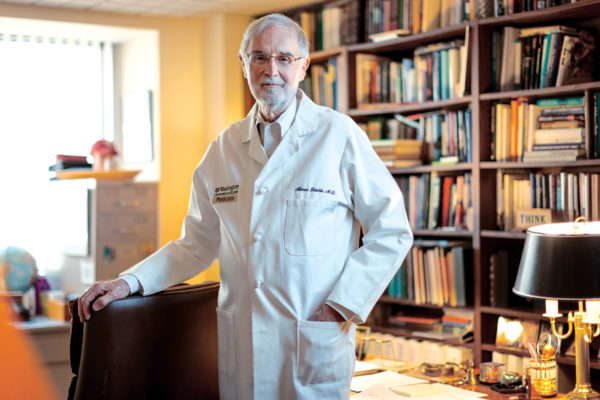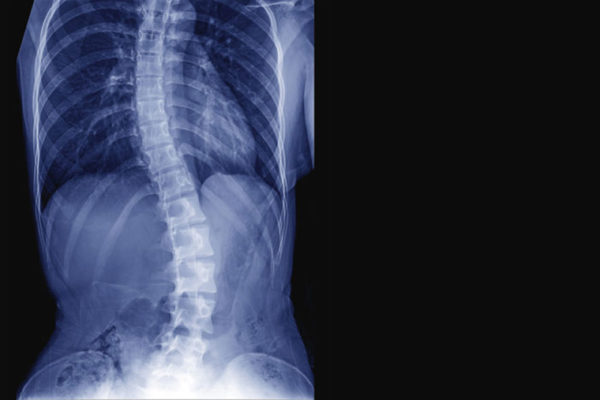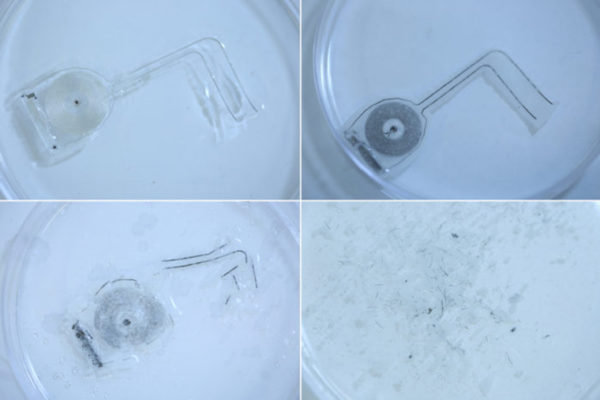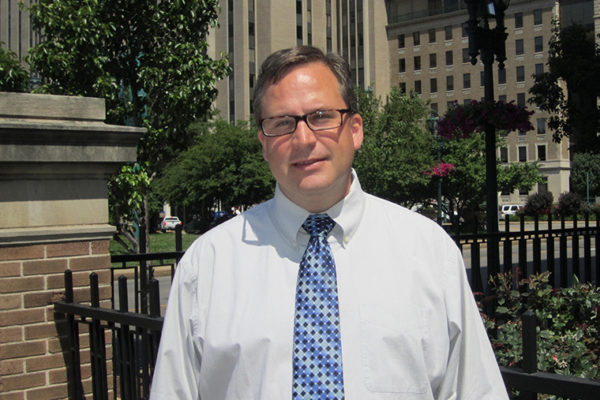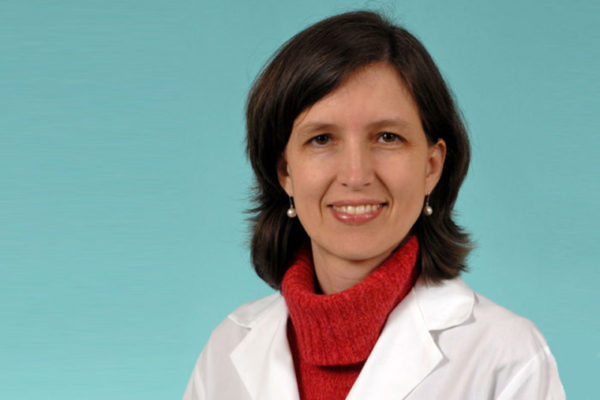Obesity linked to increased risk of early-onset colorectal cancer
A new study led by the School of Medicine shows a link between weight gain and increased risk of young-onset colorectal cancer. Rates of colorectal cancer diagnosed in people under age 50 are going up and researchers are searching for possible reasons behind the increase.
Washington People: Marcus Raichle
Marcus Raichle, MD, is a central figure in the history and science of brain imaging. He is noted for developing positron emission tomography (PET) techniques, explaining principles underlying functional magnetic resonance imaging (fMRI) and capturing some of the first snapshots of the brain at work.
Scoliosis linked to essential mineral
An inability to properly use the essential mineral manganese could be to blame for some cases of severe scoliosis, according to a new study from the School of Medicine.
Implantable, biodegradable devices speed nerve regeneration in rats
Researchers at the School of Medicine and Northwestern have developed an implantable, bioabsorbable device that helps speed recovery of peripheral nerve damage in rats by stimulating injured nerves with electricity. The device degrades in a few weeks when exposed to saltwater, which mimics bodily fluid.
Janetka wins American Chemical Society Award
James Janetka, associate professor of biochemistry and molecular biophysics at Washington University School of Medicine, is this year’s St. Louis winner of the American Chemical Society Award.
Viruses in blood lead to digestive problems
A new study in mice from the School of Medicine shows that viruses that target the nervous system can kill neurons in the gut that coordinate the process of moving waste along. Such viruses may be involved in causing people’s digestive woes.
Even light drinking increases risk of death
Analyzing data from more than 400,000 people, researchers at the School of Medicine have found that consuming one to two drinks four or more times per week — an amount deemed healthy by current guidelines — increases the risk of premature death by 20 percent.
Udey named co-director of Physician Scientist Training Program
Mark C. Udey, MD, PhD, has been named co-director of the Oliver Langenberg Physician Scientist Training Program in the Department of Medicine at Washington University School of Medicine in St. Louis. The program supports research-oriented careers in academic medicine for MD/PhDs.
Gurnett named director of pediatric and developmental neurology
Christina Gurnett, MD, PhD, professor of neurology at Washington University School of Medicine in St. Louis, has been named director of the Division of Pediatric and Developmental Neurology at the School of Medicine and neurologist-in-chief at St. Louis Children’s Hospital.
Fleckenstein honored for community service
Jaquelyn Fleckenstein, MD, professor of medicine at Washington University School of Medicine, has been honored by Legal Services of Eastern Missouri for her community service. Fleckenstein was honored for her contribution as a medical expert in a legal action to secure Medicaid coverage for life-saving hepatitis C medications.
View More Stories

